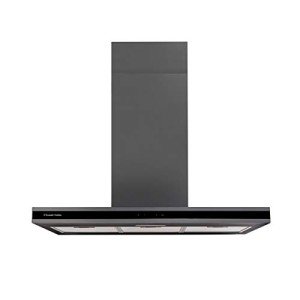10 Quick Tips For Island Hob
페이지 정보
조회 2회 작성일 25-05-20 14:46
본문
The Island Vent Hood: A Comprehensive Guide to Choosing and Installing the Perfect Kitchen Feature
In modern-day kitchen design, the island vent hood has ended up being an important centerpiece, seamlessly integrating performance with visual appeal. With the rise of open-concept living areas, where kitchen areas are integrated with dining and living areas, the significance of a well-designed ventilation system has actually ended up being vital. This post explores what an island extractor vent hood is, the various types available, key functions to consider, installation suggestions, and FAQs surrounding this essential kitchen element.
What is an Island Vent Hood?
An island vent hood is a kitchen ventilation system developed to be set up above an island cooktop or range. Unlike traditional wall-mounted hoods, island cooker hood hoods are suspended from the ceiling, providing a clear view of the cooking location while efficiently getting rid of smoke, steam, and smells from the kitchen. This makes island hoods an appealing choice for open designs while guaranteeing a clean and comfortable cooking environment.
Kinds Of Island Vent Hoods
When choosing an island vent hood, it is vital to understand the numerous types offered in the market. Here are the primary classifications:
| Type | Description |
|---|---|
| Ducted | Ventilation is directed outside, offering the best air quality by expelling air and smells. |
| Ductless | Utilizes filters to clean up the air and recirculate it back into the kitchen; much easier to set up. |
| Convertible | Can run in both ducted and ductless modes, offering versatility in installation. |
| Under-Cabinet | Installed under cabinets; typically lower output, appropriate for smaller kitchen designs. |
Secret Features to Consider
Choosing the right island vent hood involves several vital factors. Here are the important features to think about:

- Size: The hood must be at least as broad as the cooktop. Ideally, it ought to extend 6 inches on either side for ideal performance.
- CFM Rating: The Cubic Feet per Minute (CFM) score shows the hood's ventilation power. Higher CFM is required for heavy cooking, while lower CFM might be enough for lighter use.
- Noise Level: Measured in sones, a lower sone ranking indicates a quieter operation. A quiet fan is particularly essential in open-concept areas.
- Lighting: Many island hoods come equipped with built-in lighting. LED lights are popular for their energy performance and island vent hood longevity.
- Style: Island vent hoods can be found in various designs, consisting of modern, conventional, and commercial. Pick a hood that complements the overall kitchen visual.
Setup Tips
Installing an island vent hood can be a complex procedure. Here are some necessary tips to facilitate the installation:
- Check local codes and policies to guarantee compliance with setup height and electrical requirements.
- Identify the hood's height: The top of the hood should be 30 to 36 inches above the cooking surface area, depending on the manufacturer's recommendations.
- Secure the installing bracket: Ensure that the installing bracket is properly anchored to the ceiling to support the weight of the hood and motors.
- Ductwork factors to consider: If using a ducted system, ensure proper duct size and design for optimum air flow. Avoid sharp bends in ducting, which can impede air movement.
- Electrical setup: Ensure that the electrical connections meet your hood's power requirements, and think about working with a certified electrical contractor for complicated setups.
Expense Considerations
The expense of an island vent hood can range considerably depending on functions, materials, and brand name. Below is a breakdown of possible costs associated with acquiring and installing these hoods:

| Cost Element | Estimated Range |
|---|---|
| Standard Models | ₤ 300 - ₤ 600 |
| Mid-range Models | ₤ 600 - ₤ 1,200 |
| High-End Models | ₤ 1,200 - ₤ 3,000+ |
| Installation Costs | ₤ 200 - ₤ 500 |
Frequently Asked Questions
1. How frequently must I clean my island vent hood?Regular cleaning is recommended, with deep cleaning a minimum of as soon as a month, specifically if you prepare regularly. 2. Can I install an island cooker hoods uk vent
hood myself?While it is possible, professional
setup is recommended for safety and optimum efficiency, especially with ductwork and electrical connections. 3. Are ductless island hoods effective?Ductless hoods can successfully filter
smoke and smells, but they may not be as powerful as ducted models. They require routine filter replacements and maintenance. 4. What sort of maintenance does an cooker island Vent Hood (Mozillabd.Science) require?Regular cleansing of filters, lights, and hoods, along with looking for any wear and tear on motors or ductwork is vital for keeping efficiency
. 5. What kind of filters need to I use?Most island vent hoods use aluminum or charcoal filters. Aluminum filters are recyclable, while charcoal filters require to be replaced
periodically. The island vent hood is a crucial element of a modern-day kitchen, offering exhaustion of unwanted smells and making a striking design statement. Picking the best type, understanding necessary
features, and adhering to proper setup methods will make sure ideal performance and durability of this kitchen island hood device. Whether you are a seasoned chef or a periodic home cook, the ideal island vent hood can considerably boost your cooking experience. By following the standards and considerations detailed in this short article, house owners can make educated choices and take pleasure in a cleaner and more enjoyable cooking environment.
- 이전글Why You Should Be Working With This Cooker Hood For Island 25.05.20
- 다음글Island Cooker Extractor Fan: What's The Only Thing Nobody Is Discussing 25.05.20
댓글목록
등록된 댓글이 없습니다.
